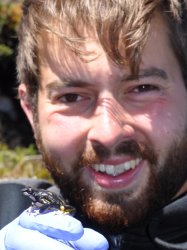Publications
2 results found
Jervis P, Pintanel P, Hopkins K, et al., 2021, Post‐epizootic microbiome associations across communities of neotropical amphibians, Molecular Ecology, Vol: 30, Pages: 1322-1335, ISSN: 0962-1083
Microbiome–pathogen interactions are increasingly recognized as an important element of host immunity. While these host‐level interactions will have consequences for community disease dynamics, the factors which influence host microbiomes at larger scales are poorly understood. We here describe landscape‐scale pathogen–microbiome associations within the context of post‐epizootic amphibian chytridiomycosis, a disease caused by the panzootic chytrid fungus Batrachochytrium dendrobatidis. We undertook a survey of Neotropical amphibians across altitudinal gradients in Ecuador ~30 years following the observed amphibian declines and collected skin swab‐samples which were metabarcoded using both fungal (ITS‐2) and bacterial (r16S) amplicons. The data revealed marked variation in patterns of both B. dendrobatidis infection and microbiome structure that are associated with host life history. Stream breeding amphibians were most likely to be infected with B. dendrobatidis. This increased probability of infection was further associated with increased abundance and diversity of non‐Batrachochytrium chytrid fungi in the skin and environmental microbiome. We also show that increased alpha diversity and the relative abundance of fungi are lower in the skin microbiome of adult stream amphibians compared to adult pond‐breeding amphibians, an association not seen for bacteria. Finally, stream tadpoles exhibit lower proportions of predicted protective microbial taxa than pond tadpoles, suggesting reduced biotic resistance. Our analyses show that host breeding ecology strongly shapes pathogen–microbiome associations at a landscape scale, a trait that may influence resilience in the face of emerging infectious diseases.
Ghosh P, Brookes L, Edwards H, et al., 2020, Cross-Disciplinary Genomics Approaches to Studying Emerging Fungal Infections, Life, Vol: 10, ISSN: 2075-1729
Emerging fungal pathogens pose a serious, global and growing threat to food supply systems, wild ecosystems, and human health. However, historic chronic underinvestment in their research has resulted in a limited understanding of their epidemiology relative to bacterial and viral pathogens. Therefore, the untargeted nature of genomics and, more widely, -omics approaches is particularly attractive in addressing the threats posed by and illuminating the biology of these pathogens. Typically, research into plant, human and wildlife mycoses have been largely separated, with limited dialogue between disciplines. However, many serious mycoses facing the world today have common traits irrespective of host species, such as plastic genomes; wide host ranges; large population sizes and an ability to persist outside the host. These commonalities mean that -omics approaches that have been productively applied in one sphere and may also provide important insights in others, where these approaches may have historically been underutilised. In this review, we consider the advances made with genomics approaches in the fields of plant pathology, human medicine and wildlife health and the progress made in linking genomes to other -omics datatypes and sets; we identify the current barriers to linking -omics approaches and how these are being underutilised in each field; and we consider how and which -omics methodologies it is most crucial to build capacity for in the near future.
This data is extracted from the Web of Science and reproduced under a licence from Thomson Reuters. You may not copy or re-distribute this data in whole or in part without the written consent of the Science business of Thomson Reuters.

